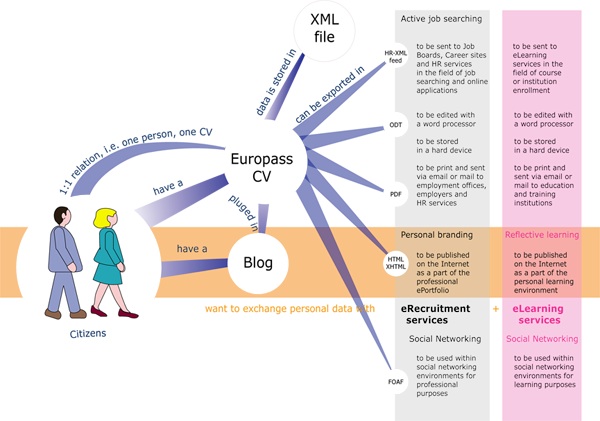Putting learners in control of their data
The issue of data ownership and control is becoming a regular theme on this blog. Witness my rant against the UK governments development of am electronic database to track every teenager from the age of 14, recording their personal details, every exam result and exclusions. The database is intended to include a CV.
I had an interesting talk with Margarita Perez-Garcia last Friday. Margarita led the European Kite project. Rather than providing a centralised database for a CV, outside the control of the leaner, the Kite project has developed a plug in version ofht eEuropean CV format. The project has developed the plug in for three systems – WordPress, Elgg and Dotclear. It is available under a GPL lisence and is compatable e with the HR-XML standard.
I think this is a great project. Why?
- It puts learners in control of their own data
- It is useful – data only needs to be added once and users can decide what data is displayed in any particular instance
- It is based on a ‘bottom up’ approach to standards (using what works)
- It is not difficult to see how the work could be further extended
- and – of course – it is open source.
One of the reasons I like this so much is that it is a European project which has produced something useful. The sowfatre can be downloaded from the labs.Libre tracker.


There are so many aspects to consider so that the debate is anything but simple. Balancing off the value of UK’s great work in developing strong NVQs, portability of assesments and artifacts, interoperability of systems, the ability to evaluate the performance of the system(s) and institution itself, and of course the value/risk to learners as well as their interests in security, privacy, confidentiality and security is a difficult task. The rights and safety of the individual learner certainly has to come first, so it is essential to take that into account while trying to simultaneously leverage the best value to citizens and institutions. Thank you and keep up the great discussion!